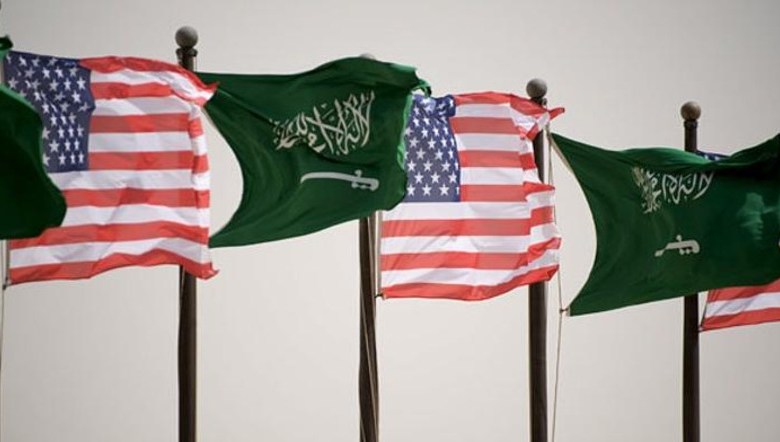
The Quincy International Center for Studies revealed that Saudi Arabia spent more than $100 million on lobbyists in the United States of America to continue the kingdom’s military deals and cover up the Yemen war.
March 26 marked the seventh anniversary of the disastrous war in Yemen, which claimed nearly half a million lives.
Simultaneously, the Saudi-led coalition fighting the Houthi rebels has recently intensified its attacks in this destabilizing conflict, the world’s worst humanitarian crisis.
Throughout the war, according to the centre, the kingdom spent more than $100 million on lobbyists and public relations specialists in the United States to get this done and keep arms sales flowing.
According to a briefing by Dr Anil Schillin, Middle East Research Fellow at the Quincy Institute, the Saudi-led coalition has carried out more than 24,600 airstrikes since the start of the war in 2015, highlighting the asymmetric nature of the ongoing war in Yemen.
More than 9,000 Yemeni civilians have been killed in Saudi coalition airstrikes, compared to 59 Saudi civilians killed in cross-border Houthi attacks — comforting the narrative that this war is somehow justified in self-defence.
The Yemen Data Project, a non-profit organization that tracks data on the war in Yemen, found that the Saudi-led coalition carried out nearly 700 airstrikes in February 2022. The frequency of bombings in the past months was higher than in any month since 2018.
Yet most Americans are happily ignorant of Saudi transgressions in Yemen.
In many cases, Saudi airstrikes responsible for civilian deaths were preceded or followed by talking points of Saudi pressure groups promoting improved targeting, the Saudis’ commitment to peace, or Saudi humanitarian efforts in Yemen.
For years, the Saudi lobby has mobilized an army of lobbyists, including former members of Congress, who frame the war in Yemen as a humanitarian mission.
For example, on January 20, 2022, Tripp Baird of Off Hill Strategies distributed a letter to congressional offices pointing the finger at Houthi rebels to justify the escalation.
Byrd linked a news conference in which Ned Price, a State Department spokesman, condemned the Houthi attacks to justify their massive and disproportionate response.
Their email insisted that “the Iranian-backed Houthis are responsible for prolonging the suffering of the Yemeni people.”
Byrd concluded the speech by portraying Saudi Arabia as “committed to achieving lasting peace in Yemen.” A day later, Saudi Arabia launched an airstrike on a detention centre in Saada, which left 91 civilians dead, including three children playing in a nearby field.
Raytheon Technologies manufactured the laser-guided bomb used in that attack. A few days after the attack, on January 5, Raytheon’s CEO celebrated rising tensions in the Middle East in an earnings call with investors saying, “We see, as I say, opportunities for international sales.”
Raytheon’s lobbyists aren’t afraid to take advantage of those opportunities. According to its fourth-quarter filing in the Senate Lobbyist Disclosure Database, Raytheon spent $2.7 million to lobby Congress on various issues, including lobbying against a joint resolution rejecting a pre-approved sale of Raytheon-made sales to the kingdom.
This is not an anomaly. On March 12, 2021, an airstrike killed 18 people in a residential area of al-Maqbanah. On March 15, just three days later, Hogan Lovells distributed letters affirming the kingdom’s “unwavering commitment to achieving peace in Yemen,” many sent by former Senator Norm Coleman.
There was a noticeable rise in airstrikes on the same day, with 178 airstrikes and 12-15 strikes per raid.
On May 11, 2021, Hogan Lovells distributed a letter saying that Saudi Arabia supports a “peaceful solution to the conflict in Yemen”. A few weeks later, on May 7, 2021, an airstrike hit a residential area, killing 11 civilians in Serwah. A week later, an airstrike on a medical centre killed another seven civilians.
Lobbyists on behalf of Saudi Arabia routinely published information alleging the kingdom’s desire for peace even as deadly airstrikes escalated, and they found a sympathetic ear in Washington.
While US President Joe Biden once referred to Saudi Arabia as a “pariah,” his administration recently approved more arms sales to the kingdom and coalition allies like the United Arab Emirates.
Statements like those made by Price are all the ammunition lobbies need to press their case on Capitol Hill and with the administration.
With the seventh anniversary of the war, Saudi Arabia wants to promote that it is not the aggressor, and it has paid large sums to advance this narrative in the United States. Still, the reality is very different from the picture painted by the lobbyists.
Airstrikes by the Saudi-led coalition have killed thousands of civilians, destroyed infrastructure and prolonged the blockade at the heart of a humanitarian crisis that has left nearly half a million people dead.
No amount of money or lobbying can change this reality, but ending US support for the Saudi-led campaign in Yemen can happen.